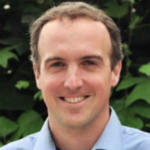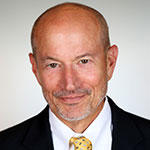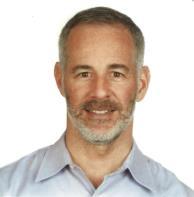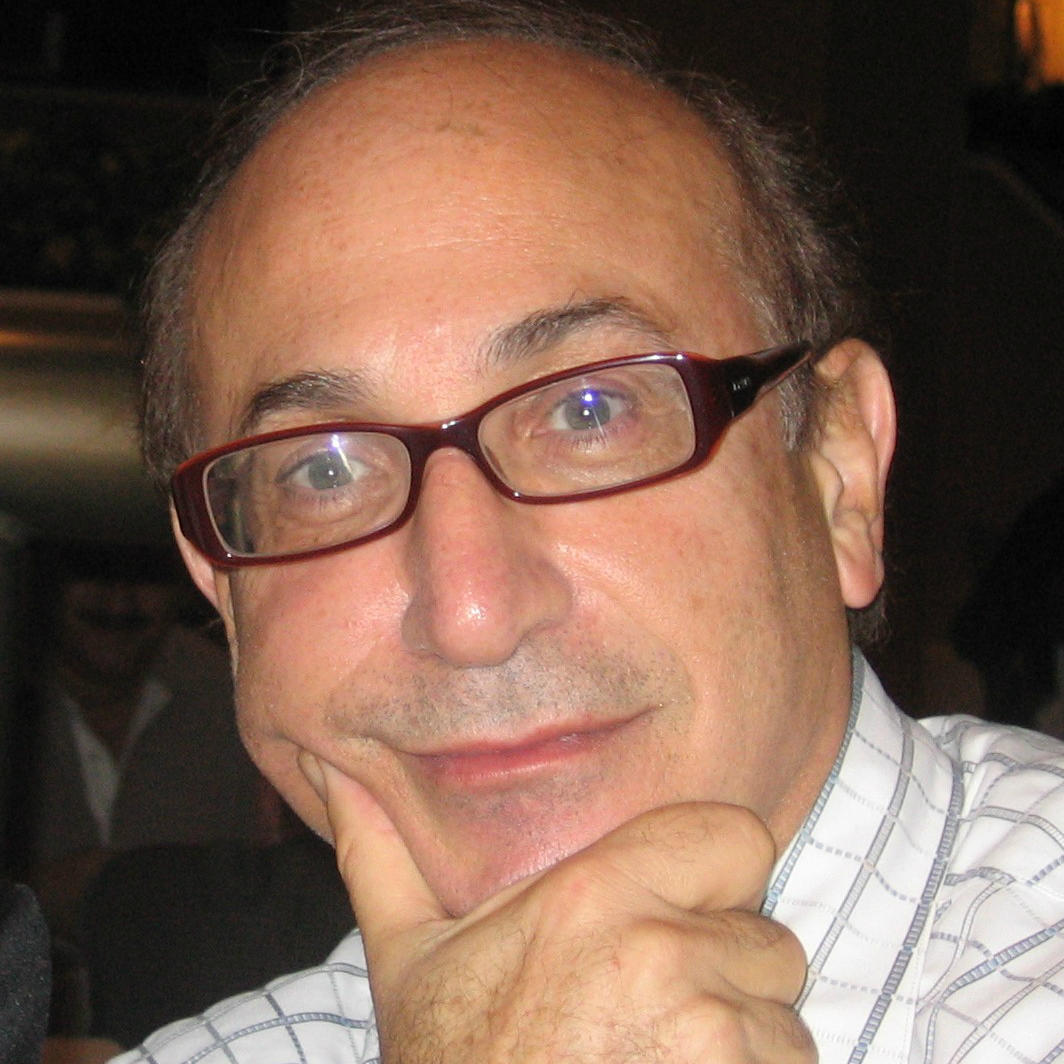Second International Conference on Medical Education
Evidence-Based Medical Education
November 19–21, 2015
Mövenpick Hotel, Beirut, Lebanon
Abstracts

Dimitri Azar, MD, MBA
Dean, College of Medicine, University of Illinois
Professor of Ophthalmology, Bioengineering and Pharmacology
B.A. Field Chair in Ophthalmologic Research
PLENARY 1: Diseases of the Curriculum Grand Rounds: Undergraduate and Postgraduate Cases
Evidence-based medicine has lead to curricular transformations in undergraduate medical education (UGME) and graduate medical education (GME)/residency programs in many medical schools across the world. This presentation describes several recurrent curricular problems that we encountered during the transformation of our UGME and GME programs. We describe established curricular diseases (Curriculosclerosis, Curriculoarthritis, CA of Curriculum,…) as well as newly described diseases (Curricular Dysregulation, Curricular Hyperplasia, EICS,…). We will employ the Grand-Round case method to illustrate diagnostic and therapeutic approaches for addressing these conditions.”
WORKSHOP 1: Role of the College of Medicine Leadership in Insuring Delivery of Quality Education in UGME
An essential determinant of success in medical schools is leadership. During this moderated discussion, a number of initiatives will be elaborated with first-hand examples to illustrate how excellence in medical education could be achieved. These initiatives include introduction of new teaching methodologies (such as team-based learning, flipped classroom, and promotion of active learning); alignment of instructional methods with the assessment system; revised grading system to support assessment for learning; methods to ensure student preparedness; formalized structures for providing and receiving feedback; creation of a learning environment that reflects the curricular model and the institutional philosophy; investment toward promoting simulation and clinical performance centers; and a functional monitoring system of the entire operation. A successful curricular transformation depends on many factors which could be achieved with a strong leadership. Participants will engage in active discussion and reflect on ways of incorporating some of these ideas presented at their own institutions.

Kevin Eva, PhD
Professor and Director of Educational Research and Scholarship in the Department of MedicineSenior Scientist in the Centre for Health Ed ucation Scholarship University of British Columbia / British Columbia, Canada
PLENARY 2: Evidence-Based Medical Education: Is There Such a Thing As Best Practice and What Counts As Evidence?
As the field of medical education becomes professionalised, uncertainty regarding what constitutes best practice continues to create tension and conflict between educators with different worldviews. As academics, we generally encourage the judicious use of evidence to optimize educational practices. As evidence accumulates, however, it routinely alerts us to complexities that make it impossible to meaningfully identify any one practice as necessarily being the best. That situation is often interpreted as indicating that there is no (sufficient) evidence to justify efforts to evolve. For others, it is a fundamental reminder of the importance of innovation and the need to treat quality improvement efforts as continuous and never-ending. How to best resolve these contradictions remains unclear. In this talk we will explore these conflicting perspectives and consider the implications of defining evidence as information that can help educators to think better about the problems they are trying to solve rather than as proof to justify particular absolutes. We will promote the use of research to establish principles to inform practice rather than as mechanisms to generate the correct answer.
WORKSHOP 2: Creating a Multiple Mini-Interview (MMI) for Admission to Medical Schools (at LAU Byblos)
Despite the critical importance of maintaining a valid and transparent selection process that serves the values held by all stakeholders involved in health professional education (i.e., students, faculty, society), there are many problems with available admissions protocols. Some of those problems derive from inertia induced by inaccurate intuitions pertaining to the nature of admissions protocols and the underlying qualities being measured. Others arise from the lack of reliable and valid admissions protocols to capture the non-academic qualities of candidates.
In this workshop we will explore the reasons for making selection decisions, the advantages and disadvantages of existing selection strategies, and the research findings relevant to an innovative OSCE-based approach known as Multiple Mini-Interviews (MMIs). Through participation in this workshop, educators will (1) Discuss a variety of issues related to making admissions decisions in the health professions; (2) Examine the state of the science with respect to evidence pertaining to admissions protocols; (3) Experience the act of blueprinting one’s selection strategy to the qualities desired; and (4) Practice writing MMI stations that fit participants’ institutional blueprint.
WORKSHOP 7: Designing Your research for Publication in Education Journals
Health professional education as a field is rife with diversity (of scholarly backgrounds, methodological approaches, and conceptual outlooks). That diversity is an essential condition for the field’s current success and continued maturation. It simultaneously, however, creates challenges with respect to defining research quality in a uniform and productive manner that can create uncertainty about publication standards.
The goals of this workshop will be to provide authors (or potential authors) with a better understanding of what it takes to publish in health professional education. In an effort to help you consider publication strategy and the influence it should have on your research efforts, we will discuss the qualities of good research articles, common pitfalls in research design and their impact on the evaluation of submitted papers, as well as what goes on ‘behind the scenes’ of the publication process. Workshop participants will be asked to consider the following questions and issues: (1) What problems have you encountered in trying to get your work published?, (2) What makes a paper publishable? (3) Why do papers get accepted or rejected? (4) What happens to a paper during the review process? (5) Issues of style; (6) Ethical aspects of publication

Janet Grant, PhD
Director of the Centre for Medical Education in Context (CenMEDIC) and FAIMER Centre for Distance Learning
Honorary Professor in University College London Medical School, London, UK
PLENARY 5: Learning Theories in Medical Education. Is there Evidence?
This presentation will address the use of learning theories in medical education. We will ask: Where is the evidence?
There are some commonly cited ideas in the medical education literature such as active and passive learning, adult learning theory, experiential learning, learning styles, reflection and learner centredness. Sometimes, more complex ideas are cited such as cognitive theories, cognitive load theory, transformative theories and constructivism. Sometimes these are referred to as learning theories, and sometimes as educational theories.
These ideas are at a wide range of specificity and generality.
Many ideas in education are socially constructed, simply following the general views and values of the day.
But is there any evidence for any of them? To answer this question, we need to understand the difference between natural and social science paradigms.
Education, being a social science, is based on theoretical paradigms that are quite different from those of the natural sciences. We will therefore examine and compare the nature of theory in natural science, social science and education. These are very different in their purposes, their power and uses, and in their evidence bases.
Whereas we could classify, for example, constructivism and behaviourism as theories, other popular ideas such as adult learning and student or teacher centredness, do not reach that status. These are simply ideas about teaching and learning methods, unrelated to theory and largely lacking an evidence base.
From the wide range of available learning theories, some are of particular importance for medical education and the journey that a learner must make from new student to independent practitioner. These constructivist theories reflect the process of acquisition, construction and use of knowledge and explain how knowledge and skill become integrated in the service of practice through cognitive processes of assimilation and accommodation of knowledge structures in memory.
Constructivist theories emphasise the trajectory of learning that every student must follow towards the goal of independent practice.
We will see that ideas and theories in medical education are rarely researched in their own right. This reflects the position at all levels of education: theories are used simply as a way of describing educational activity. In general, research suggests that learning is affected by cognitive, affective, personal and social/contextual variables.
This presents significant challenges for the idea of translational research in medical education in the domain of learning theory. When coupled with the lack of a clear definition of translational research, there is a need to articulate a way forward that links educational and learning theory and the practice of medical education.
WORKSHOP 3: Leadership Towards Best Practices in Medical Education
This interactive workshop will focus on participants’’ personal leadership styles, and the requirements for leadership in an academic and professional environment towards best practice in medical education.
Participants will consider, and analyse:
- The essential tasks of leadership in the context of health professions education, including framing a vision
- Characteristics of leadership theories, focusing on:
- situational leadership
- academic leadership
- collaborative leadership
- transformational leadership
- The differences between leadership and management
- Each participant’s own leadership style and skills [self-assessment tools will be available for participants to complete]
- Matching leadership style to the characteristics of the ‘followers’
- Levels of leadership [front-line, operational, strategic]
- The types of power that each participant has as a leader [a rating scale will be available].
WORKSHOP 11: Writing Effective Educational Research Questions to Guide Collection of Evidence
Effective educational research can only be designed on the basis of a well-written research question or hypothesis. A poorly constructed research question or hypothesis will yield poorly constructed research.
This interactive workshop will guide participants through the following:
- How to identify a researchable topic
- Whether that topic implies research or evaluation and what the differences between these two approaches are
- The relative merits of writing a research question or hypothesis
- Different types of hypothesis and their advantages and disadvantages
- Examples of researchable and non-researchable questions
- Characteristics of an effective research question
- Differed types of research question
- Different types of variable [independent, dependent and jeopardising] and their effect on framing a research question.

John Norcini, PhD
President & CEO, Foundation for Advancement of International Medical Education & Research (FAIMER)
Philadelphia, USA
PLENARY 6: Workplace-Based Assessment in the Setting of Postgraduate Training
The setting of postgraduate training presents unique challenges and opportunities for assessment. The advanced patient care and procedural skills expected of trainees are not well assessed using traditional methods. Further, the educational programs themselves are smaller and less structured with fewer resources than medical schools. However, the routine interactions between trainees and patients, the relationships among members of the health care team, and the presence of skilled clinician-educators offer a rich environment for assessment.
The talk will explore the challenges and opportunities offered by assessment in the context of an apprenticeship model of education. It will focus on formative assessment and review some of the ‘methods’ currently being used. It will highlight the educational roles of these methods and describe their assessment characteristics.
WORKSHOP 5: Workplace-Based Assessment
The goal of this session is to familiarize the participants with some of the formative workplace-based assessments methods currently being used, with a focus on mini-CEX. It will highlight the importance of formative assessment in learning, review some of the research on the methods, present a model for faculty development, and describe some of the current research on feedback to trainees. Active participation will be encouraged throughout and small group activities will focus on developing a faculty consensus on assessment standards and using the methods to provide effective feedback to trainees.
WORKSHOP 8: Professionalism: How to Develop Surveys for Peers and Patients
There is a growing awareness of the importance of professionalism and great interest in methods for assessing it, even though they are in their infancy. The goal of this workshop is to familiarize participants with the range of methods currently available. In addition, it will focus on one of those methods, patient and peer questionnaires, and address the issues of deciding on content for the questionnaire, determining the scale and scoring procedures, specifying ways of developing reliable scores, and estimating the bias introduced by settings and patients. Active involvement will be encouraged throughout and small group exercises will focus on defining behaviors associated with professionalism and developing items to capture those behaviors.

Charlotte Ringsted, MD, MHPE
Professor at the Faculty of Health and Vice-Dean of Education at Aarhus University
Aarhus, Denmark
PLENARY 3: Why Do Research in Medical Education?
People may engage in scientific research in medical education for a variety of reasons or a combination hereof: Aiming at building our knowledge and understanding of learning, teaching, and educational matters related to medical education; striving to provide evidence of efficacy and effectiveness of instructional formats, programs, or curricula; or hoping to get published and eventually promoted in academic positions. Irrespective of reasons a key perspective of scientific inquiry is the possibility to challenge our intuitive assumptions about learning, teaching, and education. This presentation will give some examples and point to areas that need to be challenged in the future.
WORKSHOP 4: How to Convert Your Day-to-Day Education Problems into Research
In scientific research a practical, day-to-day problem is not the same as a research problem. In this workshop we will discuss how to get to a researchable problem, perhaps inspired by observation of phenomena in our daily practice or an initiative that has or will be implemented. We will work on defining a set of criteria of help in formulating researchable problems and how to distinguish these from confusable concepts such as evaluation, assessment, audit, or product control. Eventually we will work on how to turn problems into specific research questions. Participants are encouraged to bring their own topics to work on. Participants can benefit from reading this article - Ringsted C, Hodges B, Scherpbier A. The research compass. An introduction to research in medical education: AMEE Guide no. 56. Med Teach. 2011 Sep 1;33(9):695-709.
WORKSHOP 9: Translational Research in Medical Education
The concept Translational Research comes from biomedicine and was put forward because of a concern that basic science results was not or too late translated into clinical practice to the benefit of the patients. In Medical Education the concept Translational Research embraces two perspectives – one is the concrete perspective related to whether things learned in a simulation setting or school setting is applied in clinical practice measured by performance, behavior, or patient outcomes. The other perspective relates to whether the principles of learning and teaching translate into future learning and teaching practice. In this workshop we will discuss these two perspectives and work on why and how we should engage in translational research in medical education. Participants can benefit from reading this article - Issenberg SB, Ringsted C, Østergaard D, Dieckmann P. Setting a research agenda for simulation-based health care education. A synthesis of the outcome from an Utstein style meeting. Sim Healthc. 2011 Jun;6(3):155-67.

Ross J. Scalese, MD
Associate Professor of Medicine
University of Miami Miller School of Medicine
& Director of Educational Technology Development
Gordon Center for Research in Medical Education
Miami, USA
PLENARY 7: Simulation-Based Medical Education: Moving Beyond Uncovering Evidence to Understanding Its Complexity
Evidence from multiple systematic reviews and meta-analyses supports the contention that simulation-based medical education interventions are effective, especially if the outcomes of interest relate to learner reaction or acquisition of certain knowledge and skills. The research providing such evidence has aimed mostly to describe simulation-based methodology and to prove that “it works” - thereby justifying the investment of resources for simulation development and implementation. Less ample, but perhaps more compelling, are studies which demonstrate that learning in the simulated environment can transfer to actual clinical settings, with positive impact both in terms of practitioner behaviors and patient health outcomes. The relative paucity of such evidence and the difficulty in carrying out such translational research both relate to the fact that health professions education is embedded within complex and multi-layered systems. Interpretations of “the evidence” that fail to acknowledge this complexity and its often context-specific nature face significant threats to validity due to lack of generalizability. Future research efforts should be directed toward understanding the complexity inherent in our healthcare education and delivery systems, and toward clarifying what specific circumstances, conditions and contexts tend to enhance simulation effectiveness.
WORKSHOP 1: Essential Skills in Simulation-Based Healthcare Education
This highly interactive, full-day faculty development workshop is designed as an introduction to fundamental skills for delivering simulation-based healthcare education through a variety of techniques. Topics for discussion include: available simulation technologies and environments; evidence-based features and practices that promote effective learning through simulation; constructing simulation scenarios; and assessment and debriefing. These large-group sessions will be interspersed among small-group breakout activities that include not only design and development of simulation scenarios, but also actual implementation with hands-on use of various simulators. Participants will experience simulations – including debriefing after each scenario – from both the instructor and learner perspectives, and will also receive feedback from experts with many years of experience using simulation for health professions education.
WORKSHOP 2: Simulation-Based Medical Education: Importance of Outcomes Alignment and Curriculum Integration
For simulation-based educational interventions to be effective, they must be integrated into the curriculum. This concept incorporates two inter-related themes: 1) learners must participate in simulation activities as required – not optional or “just for fun” – components of the curriculum; and 2) the choice of simulation-based methods for instruction and/or assessment should align with pre-determined educational objectives. This interactive workshop will guide participants through the process of creating a curriculum blueprint that incorporates simulation activities for teaching or testing. Large-group discussions will be interspersed among small-group and independent breakout activities that include: writing “SMART” educational objectives; describing which global competencies match best with simulation methods in general; and choosing specific simulation tools to achieve particular outcomes of interest.

Professor of Medical Education
Director, International Programs
Department of Medical Education
Associate Dean, International Education
College of Medicine
University of Illinois at Chicago
PLENARY 4: Toward Competency-Based Medical Education: Implications for Curriculum and Assessment
In the early twentieth century, most curricula were based on a concept of fixed time. Students who completed a program successfully were judged to be competent. However, a paradigm shift occurred toward the end of the twentieth century. This shift was to move toward competency-based programs. The intent of these programs was that only students who were judged “competent” would be able to move forward in a professional school curriculum. There are significant implications to this paradigm shift for curricular design, performance assessment, faculty development, and resources. Educators found challenges in addressing individual differences: some students were able to progress easily in some subject areas, while others were stymied by still different subject matter. Further, other students progressed at different rates than peers in competency-based assessments. While it was relatively easy to develop competencies in areas of knowledge and skill, it was more difficult to define milestone assessments in areas such as reasoning and judgment, and to assess links to complex professional behaviors. The promise in competence-based education is to graduate professionals who are better adapted for the needs of complex and rapidly changing systems. However, implementing competence- based curricula raise important questions not only in instruction, but also in assessment of competencies and outcomes. This keynote will examine perspectives and literatures that support and critique competence-based education, identify some pressing challenges for educators, and speculate on the future of this still emerging paradigm.
WORKSHOP 10: Integrating Patient Safety into the Curriculum
In 1999, the Institute of Medicine (IOM) report estimated as many as 98,000 patients die every year from preventable medical errors in U.S. hospitals. Medical errors are defined as the failure of a planned action, or the use of the wrong plan, to achieve an aim. To ensure patient safety, health care providers and systems must be prepared to recognize potential sources of error, to acknowledge vulnerability to error, and to fully engage in the process of continuous quality improvement. Most providers agree that medical errors should be disclosed to patients; however, research demonstrates that disclosure of errors is uncommon, with roughly only 1 in 4 errors being disclosed. Many providers continue to remain silent secondary to the fear of litigation, fear of stating explicitly to a patient that an error occurred, and the desire to put a positive spin on a situation. Addressing quality and safety issues in health care is difficult because the culture of secrecy and silence reduces awareness by future generations of providers.
This workshop will explore in depth error science, and elaborate issues related to reporting, investigation, Root Cause Analysis, and quality improvement. It will also focus on communication—whether verbal, nonverbal, written, and via technology (phone messages, e-mails)—which is a core component of both medical error and quality improvement. During the workshop the participants will look more closely at how each of these elements plays a role in the evolving story of a medical error. A number of curricula that have incorporated patient safety into their curricula will be presented, and methods of integration at the undergraduate and postgraduate levels will be discussed. The workshop will be very interactive; participants will watch videos, identify sources of error, and discuss ways of incorporating some components of patient safety into their curricula.